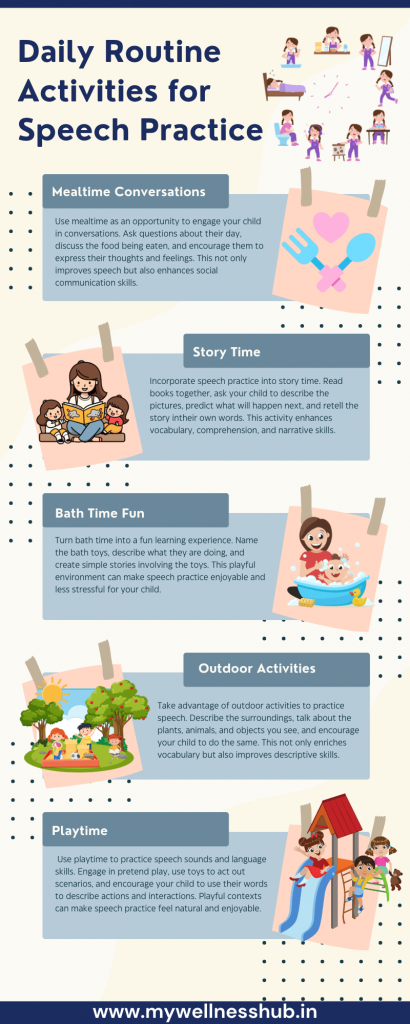Why Parent Involvement is Crucial in In-Home Speech Therapy
Last Updated: June 3, 2024
Speech therapy is a vital resource for children facing communication challenges. It helps them develop the necessary skills to express themselves effectively, improving their overall quality of life. However, the journey to better speech and language skills isn’t one that children should embark on alone. Parents play a unique and indispensable role in this process, especially when therapy is conducted at home.
We will explore the multiple benefits of parental involvement in in-home speech therapy. From building trust and confidence to providing tailored support and consistent reinforcement, the impact of a parent’s participation is profound. Let’s dive into why your role as a parent is crucial in your child’s speech therapy journey and how you can make the most of this opportunity to help your child thrive.

The Role of Parents in Speech Therapy
Parent involvement in in-home speech therapy is essential for maximizing the effectiveness of the treatment. When parents actively participate in their child’s speech therapy, they become crucial allies in the journey toward improved communication skills. This involvement goes beyond merely observing therapy sessions; it encompasses being a proactive part of the therapeutic process.
Importance of Parents in Speech Therapy
Parents are uniquely positioned to support their child’s speech therapy because they know their child better than anyone else. Your deep understanding of your child’s personality, preferences, and daily routines can significantly enhance the therapy process. This intimate knowledge allows you to tailor the therapy activities to suit your child’s needs better, making the sessions more engaging and effective.
Role of Parents in Home Speech Therapy
In-home speech therapy offers a unique opportunity for parents to be directly involved in their child’s progress. By integrating speech exercises into everyday activities, parents can provide constant reinforcement and practice, which are vital for skill retention and mastery. For example, incorporating speech practice into routine activities like mealtime, playtime, or even during car rides can turn everyday moments into valuable learning experiences.
Also read: Engaging Home-Based Occupational Therapy Activities for Children with Autism.
Parental Participation in Speech Therapy
Active participation in your child’s speech therapy means more than just being present. It involves collaborating with the speech therapist, practicing exercises with your child, and providing feedback on what works best. Your involvement helps create a consistent and supportive environment that is conducive to learning. This consistency is critical because it reinforces the skills learned during therapy sessions and helps your child apply them in various contexts.
Benefits of Parent Involvement in Speech Therapy
The benefits of parent involvement in in-home speech therapy are manifold. Firstly, it fosters a strong bond of trust and confidence between you and your child. This trust encourages your child to engage more fully in therapy activities, knowing they have your support. Secondly, it ensures that therapy techniques are consistently applied, leading to quicker and more sustainable progress. Thirdly, it empowers you as a parent to become an advocate for your child’s needs, ensuring they receive the best possible support.
Building Trust and Confidence
Active parental participation in in-home speech therapy plays a pivotal role in building a strong bond of trust between you and your child. This trust is foundational for creating a supportive and encouraging environment where your child feels safe and motivated to engage in therapy activities. When your child knows that you are involved and invested in their progress, it reinforces their sense of security and boosts their confidence.
How Parental Participation Builds Trust
When you actively participate in your child’s speech therapy, you demonstrate that you are committed to their growth and well-being. This involvement can take many forms, such as sitting in on therapy sessions, practicing speech exercises together, and providing consistent encouragement. By being present and engaged, you show your child that they are not alone in their journey and that you are there to support them every step of the way.
This consistent presence helps your child develop a sense of trust. They learn that they can rely on you to help them navigate the challenges they face. This bond of trust is crucial because it encourages your child to take risks and try new things in therapy, knowing that you will be there to support them no matter what.
Impact of Trust on Confidence and Engagement
The trust that is built through your active participation has a profound impact on your child’s confidence. When children feel secure and supported, they are more likely to engage fully in therapy activities. This increased engagement is critical for making progress, as it allows your child to practice and refine their skills more effectively.
Confidence is a key factor in overcoming speech and language challenges. When your child believes in their ability to succeed, they are more likely to persevere through difficult tasks and celebrate their successes. This positive attitude not only enhances their engagement in therapy but also translates into other areas of their life, helping them build resilience and self-esteem.
Practical Ways to Build Trust and Confidence
- Be Present and Engaged: Attend therapy sessions whenever possible and actively participate in the activities.
- Practice Regularly: Incorporate speech exercises into daily routines to reinforce learning and show your commitment.
- Celebrate Small Wins: Acknowledge and celebrate your child’s progress, no matter how small, to boost their confidence.
- Provide Consistent Encouragement: Offer positive reinforcement and support to help your child stay motivated.
Building trust and confidence through active parental participation is essential for the success of in-home speech therapy. By fostering a supportive and encouraging environment, you can help your child feel secure and motivated, leading to more effective therapy outcomes.
Consistency and Reinforcement

Consistency is a cornerstone of effective speech therapy. When parents engage in their child’s therapy and participate actively, they create a supportive environment that reinforces learning. This reinforcement is crucial for helping children internalize new skills and apply them in various contexts. Let’s explore how parents can effectively reinforce speech therapy exercises through daily routines and why this consistency is so important.
Parent Engagement in Speech Therapy
Parent engagement in speech therapy is not just about attending sessions but also about integrating therapy exercises into everyday activities. By incorporating these exercises into daily routines, parents can provide continuous practice opportunities, which are essential for skill retention and mastery.
Parent Participation in Speech Therapy
Active parent participation in speech therapy involves practicing speech exercises regularly at home. This participation helps children see the practical application of their therapy skills in real-life situations. For example, you can turn mealtime into a fun speech practice session by encouraging your child to name the foods, describe their tastes, or ask for items using complete sentences. Similarly, during playtime, you can use toys and games as tools for practicing speech sounds and language skills.
Parent Role in Speech Therapy at Home
The role of parents in speech therapy at home is to create an environment where practice is natural and consistent. This means setting aside a few minutes each day for focused speech practice and finding creative ways to incorporate these exercises into routine activities. For instance, during bath time, you can encourage your child to follow multi-step directions or name body parts. During car rides, you can play games that involve identifying objects outside the window or making up stories based on what you see.
Parent Contribution to Speech Therapy
Parents contribute significantly to their child’s speech therapy by being consistent with practice. This consistency helps children internalize the skills they learn during therapy sessions. When children practice regularly, they are more likely to remember and use these skills in different settings. The repeated practice reinforces neural pathways, making speech and language skills more automatic and natural.
Importance of Consistency
Consistency is key to helping children internalize new skills. Regular practice ensures that the child does not forget what they have learned and can build on their progress. It also helps create a routine that the child can rely on, making therapy a seamless part of their daily life rather than a separate, isolated activity.
To make the most of your child’s speech therapy, consider the following tips:
- Set a Routine: Dedicate specific times each day for speech practice.
- Make it Fun: Use games, songs, and activities your child enjoys to make practice enjoyable.
- Be Patient and Positive: Celebrate small successes and encourage your child to keep trying.
- Collaborate with Therapists: Work closely with your child’s speech therapist to ensure you’re practicing the right skills at home.
Empowering Advocacy and Communication
Empowering Parents to Advocate
Active participation in speech therapy allows parents to become well-versed in their child’s progress, challenges, and specific needs. This knowledge is invaluable when advocating for your child. For instance, understanding the techniques and strategies that work best for your child enables you to discuss these methods confidently with educators and other therapists. You can ensure that these effective practices are implemented consistently across different settings, such as at school and during extracurricular activities.
By being actively involved, you become a more effective advocate for your child’s needs. You can better articulate your child’s goals, progress, and areas that require additional support. This advocacy is critical in creating a comprehensive support system that addresses all aspects of your child’s development.
Importance of Communication Between Parents, Therapists, and Educators
Effective communication between parents, therapists, and educators is the cornerstone of a successful speech therapy program. When all parties are aligned and working towards common goals, the child benefits from a cohesive and consistent approach.
- Regular Updates and Feedback: Regular communication with your child’s speech therapist ensures that you are kept up-to-date with their progress and any adjustments to the therapy plan. Sharing observations and feedback from home helps the therapist tailor the sessions to meet your child’s needs better.
- Collaborative Goal Setting: By working together, parents, therapists, and educators can set realistic and achievable goals for the child. This collaborative approach ensures that everyone is on the same page and that the child’s therapy is integrated into their overall educational and developmental plan.
- Consistency Across Settings: Consistency is key to reinforcing the skills learned in speech therapy. When parents and educators implement similar strategies and techniques, it helps the child generalize these skills across different environments. For example, if a specific speech exercise is effective in therapy, ensuring it is practiced both at home and in school can lead to better outcomes.
- Problem-Solving and Support: Open communication channels allow for effective problem-solving when challenges arise. Whether it’s a specific behavioral issue or a plateau in progress, discussing these challenges collectively can lead to finding effective solutions and providing the necessary support.
Practical Steps for Effective Advocacy and Communication
- Stay Informed: Attend all therapy sessions when possible and ask questions to understand the methods being used.
- Provide Feedback: Share your observations about your child’s progress and any challenges they face at home.
- Set Up Regular Meetings: Schedule regular meetings with your child’s therapist and educators to discuss progress and adjust goals as needed.
- Document Progress: Keep a journal of your child’s milestones and challenges to provide detailed feedback during meetings.
Emotional Support and Motivation
How Parent Involvement Improves In-Home Speech Therapy Outcomes
One of the most effective ways parents can support in-home speech therapy is by offering consistent emotional support. Children often face frustration and setbacks during therapy, which can affect their motivation and willingness to participate. By being a steady source of encouragement and positivity, parents can help their children navigate these challenges.
Parents can also use specific strategies to enhance their child’s therapy experience. For instance, celebrating small victories and progress, no matter how minor, can significantly boost a child’s morale. Acknowledging their efforts and improvements reinforces their sense of achievement and encourages them to continue working hard.
Effective Ways Parents Can Support In-Home Speech Therapy
- Create a Positive Environment: Ensure that the atmosphere during therapy sessions is positive and encouraging. Use praise and rewards to acknowledge your child’s efforts and successes.
- Be Patient and Understanding: Recognize that progress in speech therapy can be slow and requires patience. Understand that setbacks are part of the learning process, and provide reassurance and support when your child feels discouraged.
- Set Realistic Goals: Work with your child’s therapist to set achievable goals. Break down larger objectives into smaller, manageable steps to help your child experience regular success and maintain motivation.
- Provide Consistent Encouragement: Encourage your child consistently, even outside of therapy sessions. Use daily activities as opportunities to practice and reinforce therapy goals.
Strategies for Parents to Enhance In-Home Speech Therapy
- Incorporate Fun Activities: Integrate speech therapy exercises into fun and engaging activities. This approach makes learning enjoyable and less like a chore, keeping your child motivated.
- Use Visual and Verbal Prompts: Utilize visual aids and verbal prompts to help your child understand and remember their therapy tasks. Visual schedules, charts, and cue cards can be very effective.
- Model Positive Behavior: Demonstrate positive communication behaviors and attitudes. Your child is more likely to emulate your enthusiasm and commitment to their therapy.
The Impact of Emotional Support on Overcoming Challenges
Children with speech and language challenges often experience frustration, embarrassment, and low self-esteem. Parental support can significantly help them overcome these emotional hurdles. When parents show empathy and provide a safe space for their children to express their feelings, it helps build their confidence and reduce anxiety.
Emotional support from parents also teaches children resilience. Knowing that they have a reliable support system encourages them to persevere through difficult tasks and setbacks. This resilience is crucial not only for speech therapy but also for other areas of their life.
Staying Motivated Through Parental Involvement
Staying motivated in speech therapy is vital for long-term success. Parents play a key role in maintaining their child’s motivation by making therapy a consistent and integrated part of their daily life. Regular practice, combined with emotional encouragement, helps children see the value in their efforts and stay committed to their goals.
By actively involving themselves in their child’s therapy, parents can ensure that their child remains motivated and engaged. This involvement not only enhances the effectiveness of the therapy but also strengthens the parent-child relationship.
Enhancing Family Bonds
In-home speech therapy offers a unique opportunity to strengthen family relationships. When the entire family gets involved in a child’s speech therapy journey, it fosters a sense of unity, empathy, and support that can have lasting benefits beyond the therapy itself.
How Speech Therapy Can Strengthen Family Relationships
When parents actively participate in speech therapy, it sets a precedent for other family members to get involved as well. This collective effort can create a supportive environment where everyone works together towards a common goal—helping the child improve their communication skills. The shared experiences and successes in therapy can bring the family closer as they celebrate milestones and overcome challenges together.
Speech therapy can also provide structured family activities that are both educational and enjoyable. For example, incorporating speech exercises into family games or storytelling sessions can turn therapy into a fun, bonding experience. These activities not only help the child but also provide quality time for the entire family, strengthening their emotional connections.
The Role of Siblings and Other Family Members
Siblings and other family members play a crucial role in supporting the child’s speech therapy journey. Their involvement can significantly enhance the effectiveness of the therapy and create a more inclusive and understanding family dynamic.
- Siblings as Role Models: Siblings can serve as positive role models for the child undergoing speech therapy. They can demonstrate appropriate communication behaviors and encourage their brother or sister to practice speech exercises. This peer support can be incredibly motivating and help the child feel less isolated in their efforts.
- Inclusive Activities: Engaging siblings and other family members in speech therapy activities can make the sessions more dynamic and interactive. Group activities that include everyone can help normalize the therapy process and reduce any feelings of self-consciousness the child might have.
- Empathy and Understanding: When the whole family is involved in the therapy process, it fosters a deeper understanding of the child’s challenges. This empathy can lead to more patience and support from family members, creating a nurturing environment that benefits the child’s overall well-being.
- Consistent Reinforcement: Family members can help reinforce the speech therapy techniques throughout the day. Whether it’s reminding the child to use their words during mealtime or practicing speech sounds during playtime, consistent reinforcement from various family members helps solidify the child’s learning.
Practical Ways to Involve the Family
- Family Game Nights: Incorporate speech therapy exercises into family game nights. Games that involve turn-taking, storytelling, and wordplay can be both fun and therapeutic.
- Story Time: Make story time interactive by asking the child to describe pictures, predict what happens next, or retell the story in their own words.
- Daily Routines: Use everyday routines, like cooking or shopping, as opportunities for speech practice. Ask the child to name ingredients, describe steps, or make choices using complete sentences.
Real-World Practice and Motor Learning
Understanding the concept of motor learning and its application in real-world practice is crucial for effective speech therapy. Motor learning involves acquiring and refining skills through repeated practice and real-life application. This is particularly important in speech therapy, where the goal is to help children use their communication skills naturally and confidently in their everyday lives. Parent involvement is key to achieving this.
Why is Parent Involvement Important in In-Home Speech Therapy?
Parent involvement is essential in in-home speech therapy because it provides children with consistent and practical opportunities to practice their skills. When parents actively engage in the therapy process, they help reinforce the techniques and exercises introduced by the therapist, making it easier for children to internalize and apply these skills.
How Can Parents Support In-Home Speech Therapy?
Parents can support in-home speech therapy by integrating speech practice into everyday activities. This approach not only reinforces the skills learned during therapy sessions but also makes practice more relevant and engaging for the child. Here are some effective strategies:
- Incorporate Speech Exercises into Daily Routines: Use routine activities such as meal times, bath times, and bedtimes as opportunities for speech practice. For example, ask your child to name the foods they are eating, describe the steps involved in getting ready for bed, or tell a story during bath time.
- Use Playtime for Practice: Turn playtime into a learning opportunity by incorporating speech exercises into games. For instance, you can play word games, have your child describe their toys, or use role-playing games to practice conversational skills.
- Engage in Interactive Reading: During storytime, ask your child questions about the story, encourage them to predict what will happen next, or have them retell the story in their own words. This not only enhances their comprehension skills but also promotes expressive language development.
What Are the Benefits of Parent Participation in Speech Therapy?
Parent participation in speech therapy has numerous benefits:
- Enhanced Learning: Children are more likely to retain and apply new skills when they practice them regularly in real-world contexts.
- Increased Confidence: Regular practice in a supportive environment helps children build confidence in their abilities.
- Stronger Parent-Child Bond: Engaging in therapy activities together strengthens the bond between parents and children, fostering a sense of teamwork and mutual support.
How Does Parent Engagement Enhance In-Home Speech Therapy?
Parent engagement enhances in-home speech therapy by providing continuous reinforcement and making therapy a natural part of the child’s daily life. When parents are actively involved, they can provide immediate feedback and encouragement, which helps children correct mistakes and reinforce correct behaviors.
What Role Do Parents Play in Home-Based Speech Therapy?
Parents play a multifaceted role in home-based speech therapy:
- Reinforcers: They reinforce the skills and techniques taught by the therapist through consistent practice.
- Motivators: They provide emotional support and encouragement, helping their child stay motivated and engaged.
- Role Models: They model effective communication behaviors for their children to emulate.
Examples of Integrating Speech Practice into Everyday Activities
- Grocery Shopping: Ask your child to help create a shopping list, describe items in the store, or categorize foods by type.
- Cooking: Involve your child in cooking by having them follow simple instructions, name ingredients, or describe the cooking process.
- Outdoor Activities: Use nature walks to practice descriptive language by having your child describe what they see, hear, and feel.
By incorporating speech practice into everyday activities, parents can help their children make meaningful progress in their therapy. This practical application of skills is essential for motor learning and ensures that children can use their communication abilities effectively in real-life situations.
Practical Tips for Parents
As a parent, your involvement in your child’s speech therapy can significantly impact their progress and overall success. Here are some practical tips and strategies to help you get actively involved in your child’s speech therapy, making the process enjoyable and effective.
Set a Routine
Consistency is key in speech therapy. Establish a daily routine that includes specific times for speech practice. This helps your child understand the importance of regular practice and makes it a natural part of their day.
Incorporate Speech Practice into Daily Routines
- Mealtime Conversations: Use mealtime as an opportunity for speech practice. Encourage your child to name the foods, describe their textures and tastes, and engage in conversations about their day.
- Story Time: During story time, ask your child questions about the story, encourage them to predict what will happen next, and have them retell the story in their own words. This helps improve their comprehension and expressive language skills.
- Bath Time Fun: Turn bath time into a learning session by asking your child to name body parts, describe the steps involved in taking a bath, or make up a story about their bath toys.
- Outdoor Activities: Use nature walks to practice descriptive language. Ask your child to describe what they see, hear, and feel. This not only enhances their vocabulary but also makes the activity more engaging.
Make Learning Fun
Incorporate speech exercises into fun activities to keep your child motivated. Games like “I Spy,” “Simon Says,” and storytelling games can make practice enjoyable and less like a chore. The more fun the activity, the more likely your child is to participate willingly.
Use Visual Aids
Visual aids such as flashcards, picture books, and visual schedules can be very effective in reinforcing speech therapy techniques. They provide a visual representation of words and concepts, making it easier for your child to understand and remember.
Model Good Speech Habits
Children often learn by imitation. Be a good role model by speaking clearly and using proper grammar and vocabulary. Your child is more likely to emulate your speech patterns and behaviors.
Provide Positive Reinforcement
Celebrate your child’s efforts and successes, no matter how small. Positive reinforcement boosts their confidence and encourages them to keep trying. Use praise, rewards, and encouragement to motivate your child.
Collaborate with Therapists
Maintain open communication with your child’s speech therapist. Share your observations, ask for feedback, and seek advice on how to support your child’s therapy at home best. Working together ensures that you are reinforcing the right skills and techniques.
Be Patient and Encouraging
Progress in speech therapy can be slow and gradual. Be patient with your child and offer consistent encouragement. Remind them that improvement takes time and that it’s okay to make mistakes along the way.
Conclusion
In this article, we discussed how important it is for parents to be involved in in-home speech therapy. Parents help build trust and confidence in their children, making them feel supported and motivated. By practicing speech exercises daily, parents reinforce what is learned during therapy sessions, helping their child improve faster. Emotional support from parents also helps children overcome challenges and stay motivated.
We also talked about how involving the whole family can strengthen bonds and create a supportive environment. Siblings and other family members can help make therapy more effective and inclusive. Simple tips like setting a routine, using daily activities for practice, and talking with therapists can help parents create a consistent and engaging therapy environment at home. At Wellness Hub, we understand the importance of empowering parents. For more resources and support, visit Wellness Hub’s comprehensive guide. Your participation is key to your child’s success in speech therapy.
Frequently Asked Questions:
1. Why is parent involvement important in in-home speech therapy?
Parent involvement is crucial because it helps build trust and confidence in children, making them feel supported and motivated. Parents can reinforce what is learned during therapy sessions by practicing speech exercises daily, leading to faster improvement.
2. How can parents support in-home speech therapy?
Parents can support in-home speech therapy by setting a routine, incorporating speech practice into daily activities, and maintaining open communication with therapists. Consistent practice and positive reinforcement help children retain and apply their speech skills.
3. What are the benefits of parent participation in speech therapy?
Parent participation in speech therapy enhances learning, increases confidence, and strengthens family bonds. It also allows parents to provide emotional support and motivation, helping children overcome challenges and stay engaged in their therapy.
4. How does parent engagement enhance in-home speech therapy?
Parent engagement enhances in-home speech therapy by providing continuous reinforcement and making therapy a natural part of the child’s daily life. Active involvement helps children practice and apply their speech skills in real-world situations, leading to more effective therapy outcomes.
5. What role do parents play in home-based speech therapy?
Parents play multiple roles in home-based speech therapy: they reinforce skills, provide emotional support, serve as role models, and maintain consistency in practice. Their involvement is key to the child’s progress and overall success in therapy.
6. Can involving siblings and other family members help in speech therapy?
Yes, involving siblings and other family members can make speech therapy more effective and inclusive. Family members can support the child, provide additional practice opportunities, and help create a nurturing and supportive environment.
7. How can I incorporate speech practice into daily routines?
You can incorporate speech practice into daily routines by using mealtime conversations, story time, bath time, and outdoor activities as opportunities for practice. Engaging in fun activities and games that involve speech exercises can also make practice enjoyable for your child.
8. What are some practical tips for parents to get involved in speech therapy?
Practical tips for parents include setting a routine for speech practice, using daily activities for practice, providing positive reinforcement, modeling good speech habits, and maintaining open communication with therapists. These strategies help create a consistent and engaging therapy environment at home.
9. How can parents make speech therapy fun for their child?
Parents can make speech therapy fun by incorporating games and activities that involve speech exercises. Using toys, storytelling, and interactive reading can make practice enjoyable. Turning daily routines into playful learning moments keeps children engaged and motivated.
10. How often should speech therapy exercises be practiced at home?
Speech therapy exercises should be practiced daily to ensure consistency and reinforce skills learned during therapy sessions. Setting aside specific times each day for practice helps integrate therapy into your child’s routine.
About the Author:
Anuradha Karanam
Speech-language pathologist (7+ years of experience)
Anuradha Karanam is a skilled speech-language pathologist with over 6 years of experience. Fluent in Tamil, Telugu, Hindi, and English, she specializes in parent counseling, speech sound disorders, fluency assessment, and speech-language evaluations. Anuradha excels at working with children with developmental disorders, offering creative and effective therapy programs. Currently, at Wellness Hub, she holds a BASLP degree and is registered with the RCI (CRR No A85500). Her patience, ambition, and dedication make her a trusted expert in her field.
Connect with Anuradha to learn more about how she can help you or your loved one find their voice.
Book your Free Consultation Today
Parent/Caregiver Info:
Client’s Details:
* Error Message








